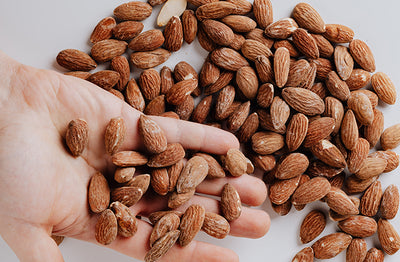Practically all of us are told to eat your vegetables as a child, but when we become in charge of our own diet, a lot of us tend to forget just how good vegetables can be for us. Vegetables of-course are better than just relying on
multivitamins for maintaining a healthy diet.
What are Vegetables?
In broad terms, vegetables are any plant part that is edible raw. While this would technically also include nuts, grains and fruits, we tend to give them a separate category. Vegetables are generally savoury and often packed with vitamins and minerals.
Vegetables can come from any part of a plant, though usually the ones that come from a flower and contain seeds are called “fruits”.
Vegetables can be most easily broken down into fibrous or starchy types:
Starchy Vegetables
We typically think of starchy vegetables as “root vegetables”, but peas, corn and squash are also fairly high in starch. Starchy vegetables contain high-quality carbohydrates and are rich in vitamins, minerals, and fiber, though they can be a little higher in calories than fibrous vegetables. With their high starch content, starchy vegetables will raise your blood sugar levels a little more that fibrous vegetables, so keep an eye on your portion size!
Fibrous Vegetables
These are vegetables high in dietary fibre. Because of this, they take a bit longer to digest, meaning that you’ll feel full for longer, and the extra fibre will help clean out your digestive tract. Common examples are Salad Greens, Onion, Spinach, Artichoke and Broccoli.

Why should I eat Vegetables
Vegetables are a must for good
general health. They are full of vitamins, minerals, dietary fibre and hundreds of different phytonutrients (nutrients naturally present in plants). They’re also low in simple carbohydrates (low kilojoule) and help you feel full, rather than feeling like you still want something more.
A diet high in vegetables has also been shown to help protect us against chronic diseases including heart disease, stroke and some types of cancers. They may also prevent excessive weight gain.
How often should I eat vegetables?
It’s generally recommended that Australian Adults have at least five serves of vegetables per day.
A standard serve of vegetables is about 75 grams, which works out to be about one corn cob, one cup of spinach or half a cup of carrots. You can get three with dinner, just by having some pumpkin, peas and half a potato in your meal.
What Vegetables should I eat?
When selecting what vegetables to add to your diet, variety is important. Getting a mix of textures and colours not only makes it look attractive on the plate, it actually varies the type of nutrients you’ll be eating.
Besides colour, mixing the type of vegetable is important too. Having leaves, roots and legumes in a meal gives you a variety of nutrients as well as textures, making the meal nutritious and also delightfully varied. There are food supplements such as
vegetable greens that are specifically designed for work-out.

Conclusion
So trying to get five servings of vegetables per day is not only healthy, but they can give your diet the variety you want while also looking and tasting great. So make sure you add vegetables to your meal plan.
Read More:

















